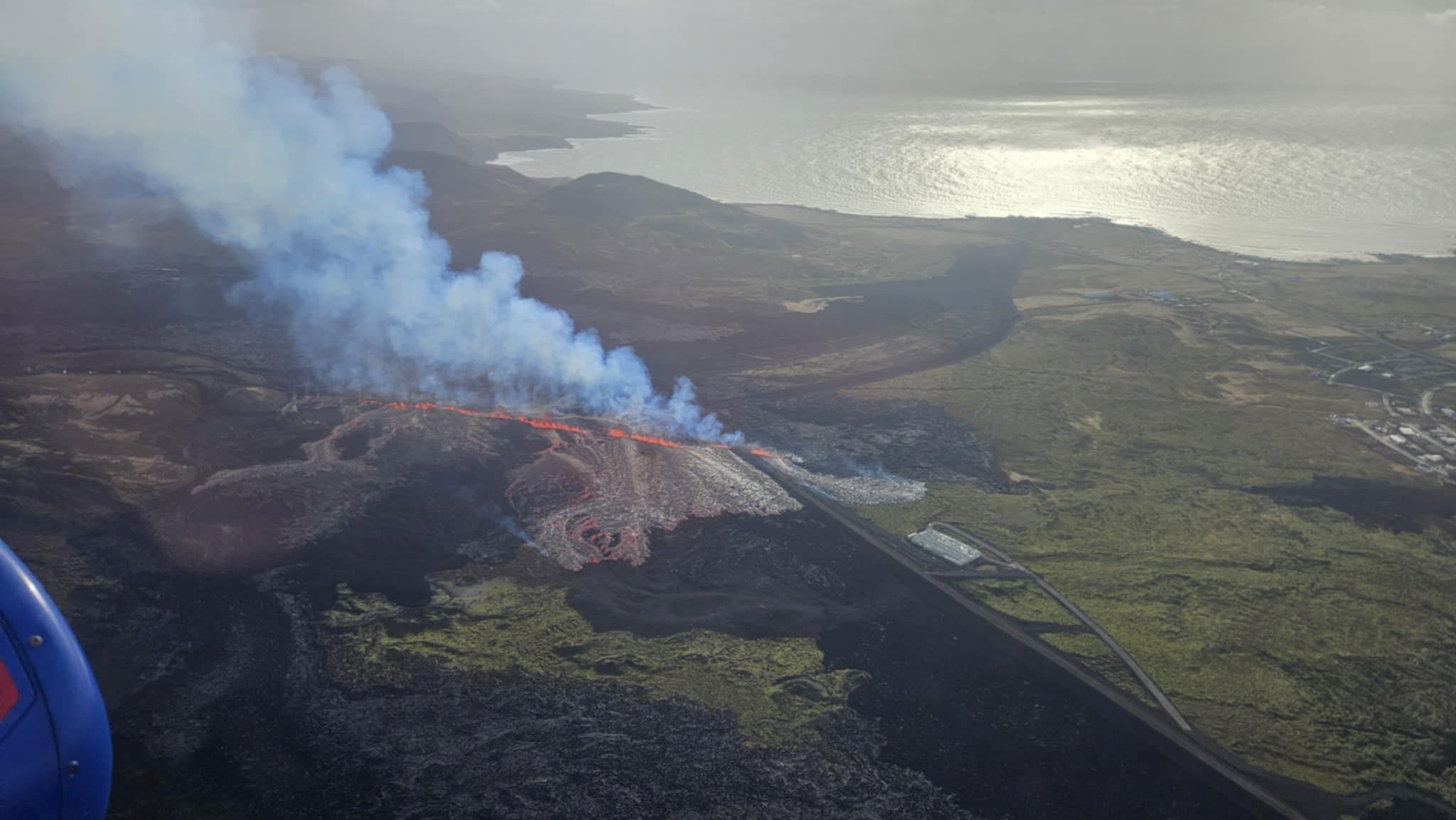Tourists evacuated as Icelandic volcano erupts, spewing lava and smoke
A red alert has been issued for the area
A volcano south of Iceland’s capital, Reykjavik, erupted on Tuesday, marking the 11th such event since 2021.
The eruption, a vibrant display of lava and smoke, prompted evacuations of areas around Sunddhnúksgígar, including the popular Blue Lagoon spa and the fishing town of Grindavik.
A red alert has been issued for the area, which has been rattled by hundreds of small earthquakes.
About 40 homes in Grindavik were occupied at the time of the evacuation, according to reports from RUV, citing local police.
While emergency services took precautionary measures, air traffic has so far been unaffected.
In an update on Tuesday evening, the Icelandic Met Office said volcanic activity north of Grindavík continued to decrease, however seismic activity continued.
It added that the largest earthquakes have been around magnitude three and have been felt in Vogar, about 7km northwest of the active area.
Iceland, known for its contrasting landscapes of ice and fire, has experienced a resurgence of volcanic activity on the Reykjanes peninsula in recent years.

These eruptions, categorised as fissure eruptions, involve lava flowing from long cracks in the earth’s crust.
Experts believe this pattern of activity could continue for decades, or even centuries.
While previous eruptions in the region have not significantly impacted Reykjavik or caused widespread ash dispersal, a January 2024 eruption of Sunddhnúksgígar did result in damage to homes and roads in Grindavik, leading to a mass evacuation.
President Gudni Th Johannesson said at the time that “a daunting period of upheaval has begun on the Reykjanes peninsula”.
The president described the situation as the “worst case scenario”.

Although some residents have since returned, the recurring volcanic activity underscores the ongoing geological shifts in the area.
The Icelandic meteorological office confirmed the latest eruption with a succinct warning: “A magma eruption has begun.”
Iceland sits above a volcanic hot spot in the North Atlantic and averages one eruption every four to five years.
The most disruptive in recent times was the 2010 eruption of the Eyjafjallajokull volcano, which spewed clouds of ash into the atmosphere and disrupted trans-Atlantic air travel for months.
Join our commenting forum
Join thought-provoking conversations, follow other Independent readers and see their replies
Comments
Bookmark popover
Removed from bookmarks